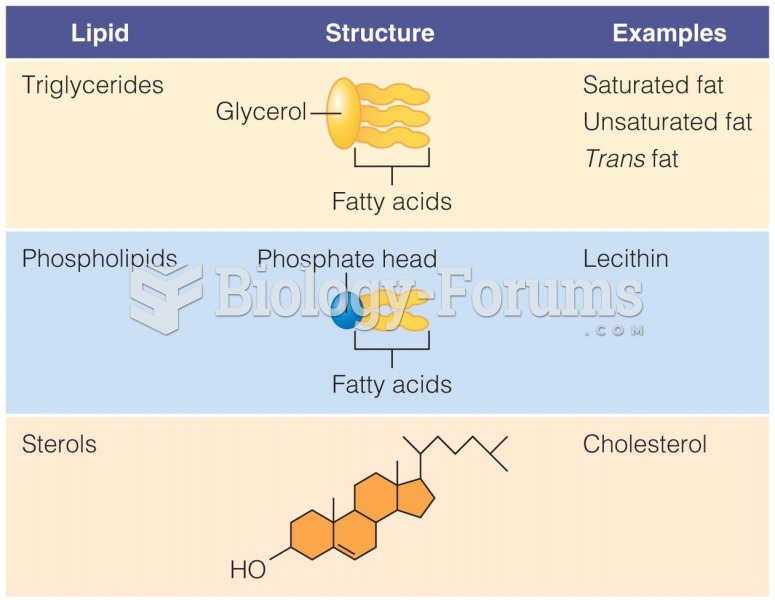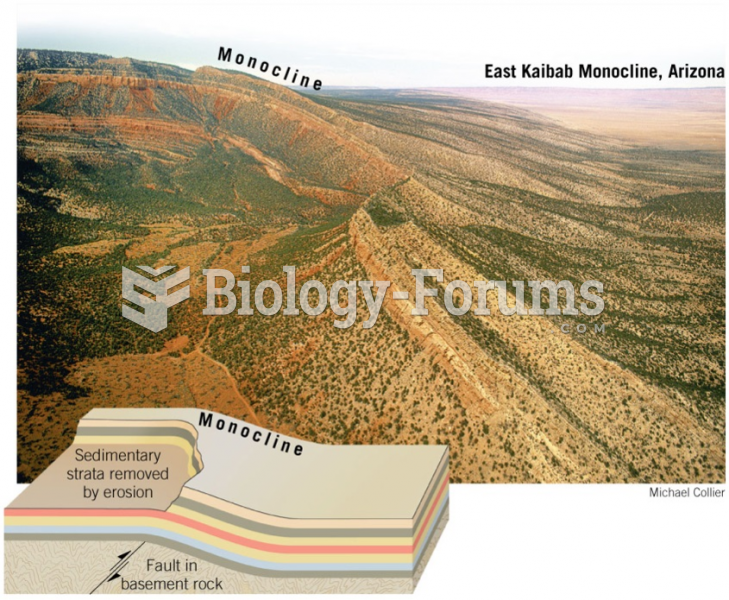|
|
|
People about to have surgery must tell their health care providers about all supplements they take.
When blood is exposed to air, it clots. Heparin allows the blood to come in direct contact with air without clotting.
After 5 years of being diagnosed with rheumatoid arthritis, one every three patients will no longer be able to work.
The human body's pharmacokinetics are quite varied. Our hair holds onto drugs longer than our urine, blood, or saliva. For example, alcohol can be detected in the hair for up to 90 days after it was consumed. The same is true for marijuana, cocaine, ecstasy, heroin, methamphetamine, and nicotine.
Vital signs (blood pressure, temperature, pulse rate, respiration rate) should be taken before any drug administration. Patients should be informed not to use tobacco or caffeine at least 30 minutes before their appointment.







